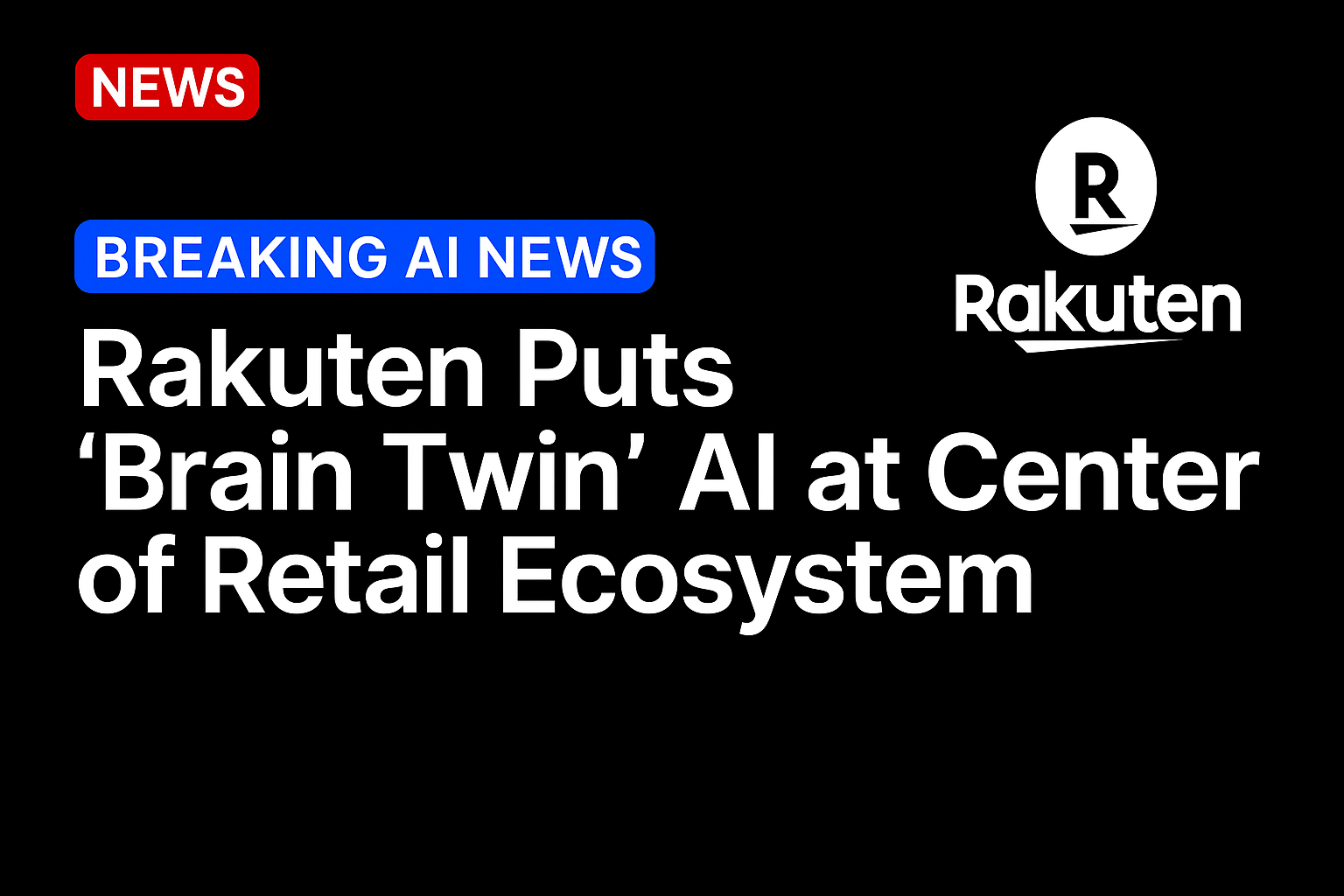Japanese eCommerce giant Rakuten is embedding its next-generation agentic artificial intelligence (AI) platform across its ecosystem, aiming to transform its own operations while equipping merchants with advanced new capabilities.
“When I started Rakuten, I believed the internet had the power to change the world, and I committed to building something that could make a real difference,” Chairman and CEO Mickey Mikitani said at the recently held Rakuten AI Optimism 2025 conference. Today, that AI is bringing transformational shifts. “Society is undergoing major changes, and we want to leverage AI not just to adapt, but to grow together.”
The centerpiece is Rakuten AI, an agentic AI platform designed to unify the group’s eCommerce, FinTech, telecom, travel and other services into an AI-powered interface. A rollout on the Rakuten Ichiba eCommerce marketplace is slated for fall.
For example, shoppers can take a photo of a pair of pants and Rakuten AI will find a similar one in the desired price range, the company said. Consumers don’t have to do keyword searches or set filters; Rakuten AI will anticipate their needs based on transaction history and other data.
After the fall rollout to marketplace, “users can expect a significantly enhanced shopping journey,” Caitlin Cai, head of product at AI Lab, Rakuten Asia, told PYMNTS. “While it won’t process payments on behalf of users, it will provide personalized recommendations and direct navigation to relevant product pages based on their queries and data.”
“Rakuten AI isn’t just about answering questions — it’s about supporting your life journey. It’s your ‘brain twin,’ built to humanize technology,” Cai said. The “brain twin” is a user’s “AI-powered alter ego that learns your preferences, acts on your behalf and helps you achieve your goals.”
Cai also said Rakuten AI is both an AI agent and an agentic AI platform that aims to reshape how users interact with Rakuten’s ecosystem, across shopping, entertainment, education and more. It acts as an “intelligent gateway” to unify diverse services into a single, unified interface.
The overarching goal is to provide “omotenashi,” or the peak of service and hospitality in Japanese, according to Rakuten.
See also: GenAI Applications in Retail Transaction Analysis: Industry Trends and Insights
How AI Can Help SMBs
Rakuten developed its own AI model to power its agentic AI capabilities. Not only is it deeply integrated with the company’s services and data, but it also comprehensively understands the Japanese language and culture, the company said in a July 30 press release.
Rakuten AI agents will grow more intelligent with every interaction, according to Cai. This feedback loop strengthens their ability to decode intent, unify fragmented data and drive action with increasing precision.
While the latest version of Rakuten AI is rolling out in the fall to its Ichiba marketplace, merchants already have access to its RMS AI Assistant beta version since last year. The R-Messe inquiry management tool uses AI to draft responses to customer questions; the R-Storefront image editor produces professional product images with customizable backgrounds; AI chatbots interact with shoppers and R-Karte is a data analysis tool that summarizes sales trends for merchants.
Generative AI use is growing. According to a March PYMNTS Intelligence report, 54% of retailers surveyed use gen AI to analyze transaction and payments data for customer segmentation in the past year. Moreover, 73% of retailers are planning to increase their use of gen AI to obtain and analyze transaction and payment data in 2026.
“Many stores with high inquiry volumes or small teams have shared how AI has made things easier and improved their efficiency,” Risa Takahashi, senior manager of product management, said in a blog post.
According to Cai, Rakuten AI uses a hybrid architecture combining Rakuten large language models (LLMs) with optimized models from outside AI providers. It is built with Japanese language optimization in mind and aims to drive cost efficiency by activating only the most relevant components for a query. Future versions will focus heavily on personalization and memory.
“Our goal is to move beyond understanding, toward anticipating user needs and building long-term relationships that enhance the Rakuten experience,” Cai said.
The company also envisions building scenario-based “AI friends,” or persona-driven assistants that can help with more complex tasks such as planning full trips or fitness routines, according to Cai.
“We’re focused on gradually introducing these capabilities to prioritize user convenience and ensure a safe, intuitive experience,” Cai said.
Source: https://www.pymnts.com/news/artificial-intelligence/




